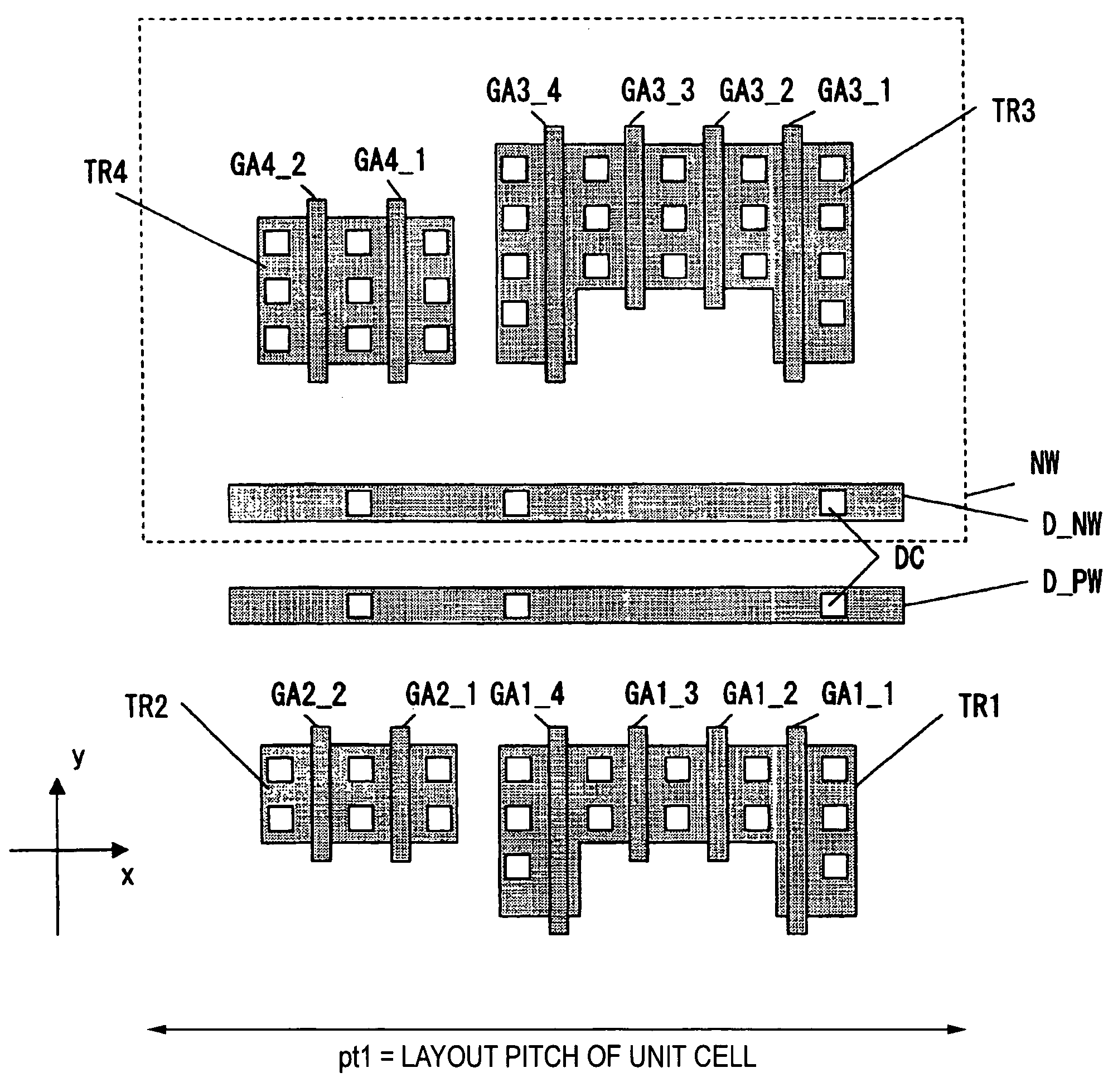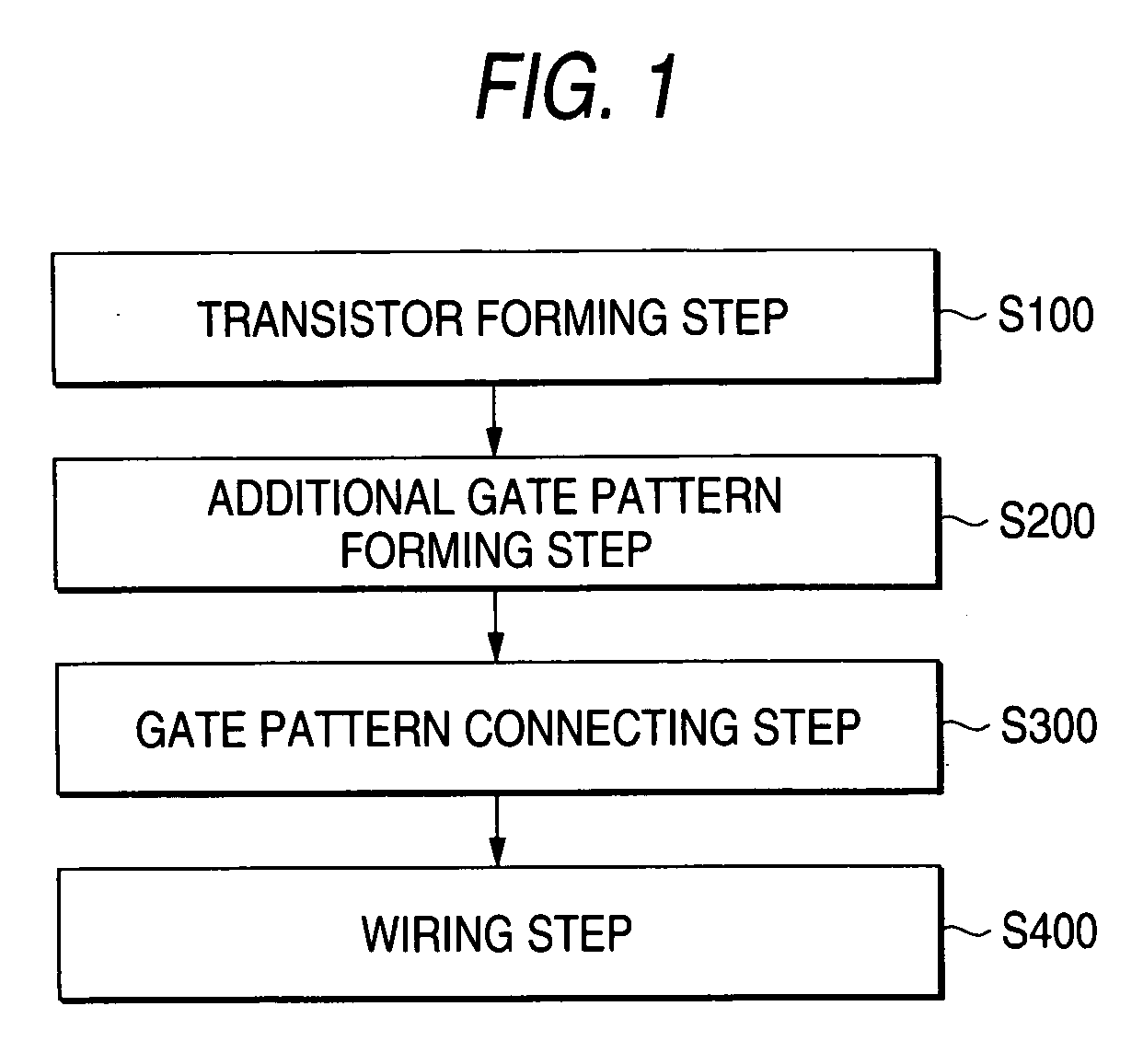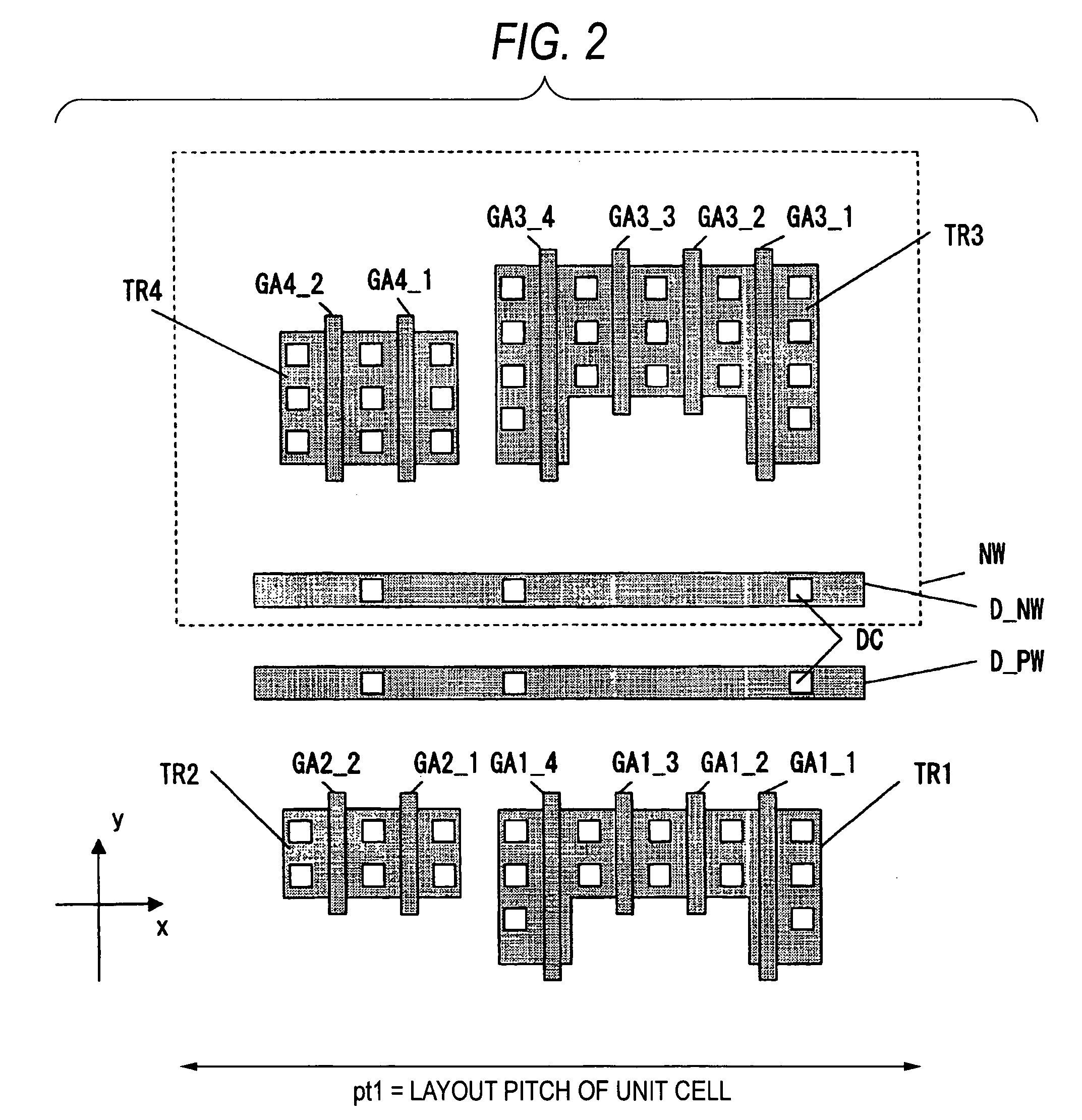Semiconductor device and layout design method therefor
a semiconductor and layout design technology, applied in the direction of transistors, solid-state devices, instruments, etc., can solve the problems of inability to connect, complicated layout design, and inability to arrange two contacts
- Summary
- Abstract
- Description
- Claims
- Application Information
AI Technical Summary
Benefits of technology
Problems solved by technology
Method used
Image
Examples
first embodiment
(First Embodiment)
[0130]FIG. 1 is a diagram showing a flow of the layout design method of the invention. After a transistor forming step S100, an additional gate pattern forming step S200 of forming an additional gate pattern serving as a dummy gate in parallel with and at a fixed distance from a gate electrode of a transistor is performed, and a gate pattern connecting step S300 of connecting a gate pattern or a gate contact region to the formed gate electrode of the transistor and arranging the gate pattern or the gate contact region and a wiring step S400 of wiring a metal layer are executed. The respective steps will be hereinafter explained with layout design of a region surrounded by 33(A) of a latch circuit shown in FIG. 33 as an example.
[0131]FIG. 2 is a layout diagram of transistors TR1 to TR4 formed in the transistor forming step S100. The transistors TR1 and TR3 have gate electrodes GA1_1 to GA1_4 and GA3_1 to GA3_4 with different gate width. The transistors TR2 and TR4 ...
second embodiment
(Second Embodiment)
[0145]FIG. 12 is a diagram showing a flow of a layout design method according to a second embodiment of the invention. The layout design method in the second embodiment is different from the layout design method described in the first embodiment in that a transistor moving step S250 of moving a transistor is added after the additional gate pattern forming step S200, an additional gate pattern correcting step S500 of correcting a shape or adding an additional gate pattern anew such that the additional gate pattern arranged as the dummy gate meets the design rule is added after the wiring step S400, and a gate pattern connecting step S300′ is a partially corrected version of the gate pattern connecting step S300 in the first embodiment. The layout design method in this embodiment will be hereinafter explained centering on the steps changed from the first embodiment with layout design of a buffer section 13(A) of a decoder circuit shown in FIG. 13 as an example.
[014...
third embodiment
(Third Embodiment)
[0164]FIG. 27 is a diagram showing a flow of a layout design method according to a third embodiment of the invention. The layout design method in the third embodiment is different from the layout design method described in the second embodiment in that an additional gate pattern forming step S200′ is a partially corrected version of the additional gate pattern forming step S200′ in the second embodiment. The layout design method in this embodiment will be hereinafter explained concerning only changed steps.
[0165]FIG. 28 is a layout diagram in which a transistor TR8 is formed in the transistor forming step S100. Gate electrodes GA8_1 to 3 are arranged on the transistor TR8 and the gate electrodes GA8_2 and GA8_3 are arranged linearly and share a source region S8_1.
[0166]FIG. 30 is a diagram showing a flow of the additional gate pattern forming step S200′. The additional gate pattern forming step S200′ consists of an external additional gate pattern forming step S2...
PUM
 Login to View More
Login to View More Abstract
Description
Claims
Application Information
 Login to View More
Login to View More - R&D
- Intellectual Property
- Life Sciences
- Materials
- Tech Scout
- Unparalleled Data Quality
- Higher Quality Content
- 60% Fewer Hallucinations
Browse by: Latest US Patents, China's latest patents, Technical Efficacy Thesaurus, Application Domain, Technology Topic, Popular Technical Reports.
© 2025 PatSnap. All rights reserved.Legal|Privacy policy|Modern Slavery Act Transparency Statement|Sitemap|About US| Contact US: help@patsnap.com



